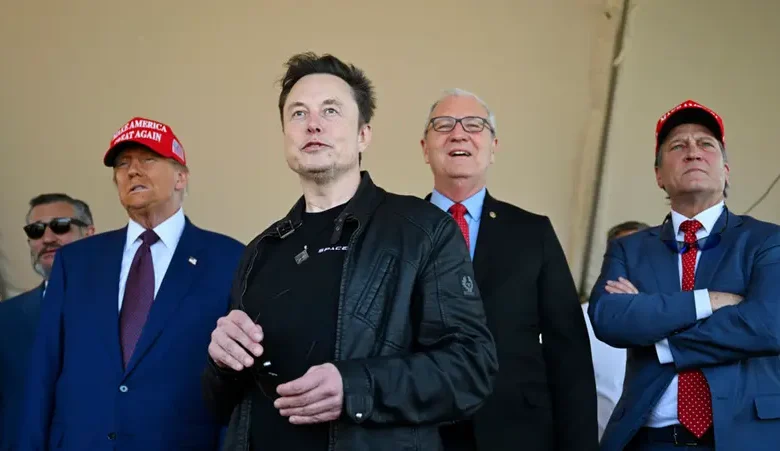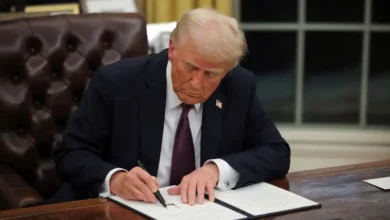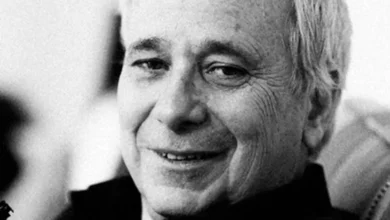From demanding elections in UK to blasting the EU, Elon Musk projects influence in Europe

He demanded new elections in Britain, promoted Germany’s far-right, blasted the European Commission — and that’s just the start. Elon Musk is pushing the hard right in Europe, where progressives are grappling with how, or even whether, to contain him.
The interventions by the world’s wealthiest man — who also owns one of the planet’s largest megaphones, social media platform X — have already seen him secure unprecedented influence thanks to his proximity to US President-elect Donald Trump.
Now the ever-more powerful Tesla and SpaceX chief is turning his gaze on Europe, where many governments are already grappling with the rise of populism and the far-right.
“(Keir) Starmer must go and he must face charges for his complicity in the worst mass crime in the history of Britain,” the multi-billionaire posted recently.
He was referring to the British prime minister’s time as chief state prosecutor in England and Wales, which coincided with a child grooming scandal — posting about it repeatedly on Friday.
Musk has also called for the release from prison of Tommy Robinson, an extremist agitator, and boosted the fringe anti-immigration Reform UK party, whose leader Nigel Farage he met with recently.
On Friday, he shared a message from former prime minister Liz Truss calling for an end to state BBC funding.
As in the United States, Musk is increasingly popular with young British men, according to the Savanta polling institute.
For them, “the lines between the perceptions of success and wealth are increasingly blurred with politics,” Chris Hopkins, Savanta’s political research director, told AFP on Friday.
Downing Street has so far refrained from engaging with Musk’s comments, other than the odd light rebuke and stressing that it “looks forward” to working with Trump’s administration.
The response Friday by a senior British government minister to Musk’s latest attacks over the exploitation scandal highlighted the delicacy of leaders’ high-wire act.
Health Secretary Wes Streeting told ITV News that Musk’s comments were “misjudged and certainly misinformed.”
But, he swiftly added, “we’re willing to work with Elon Musk, who I think has got a big role to play with his social media platform to help us and other countries to tackle this serious issue.”
“As 2025 begins, Musk is no longer a jaundiced commentator on British politics but a power player within it,” political commentator Patrick Maguire wrote in The Times on Friday.
The “government needs to figure out how to deal with Elon Musk and his interventions, because this is not sustainable,” posted Sky News political reporter Ben Bloch on X Friday, as Musk called yet again for new elections.
‘Dictator’
Britain is not Musk’s only target in Europe.
He met Hungarian Prime Minister Viktor Orban, a leading figure on the radical right, when the latter visited Trump in Florida last month.
The businessman has also been accused of interference by the German government for his strong support of the far-right AfD party ahead of parliamentary elections.
On January 9, he will host a conversation with the party leader, Alice Weidel, on X.
The 53-year-old entrepreneur also branded as “dictator” judges who recently annulled Romania’s presidential election amid suspicions of Russian interference.
Musk is also an enthusiastic supporter of Italian Prime Minister Giorgia Meloni, the country’s most right-wing leader since 1945, who calls him a “genius.”
Politics and business
Musk’s political initiatives are intimately linked to his economic interests, experts suggest.
For Musk and Trump, “democracy, debate, disagreement, state welfare systems all get in the way of business,” said Ilan Kapoor, a professor at Toronto’s York University known for his critical research on neo-liberalism.
“This is why they look favorably towards more authoritarian forms of government, which they think can function more efficiently, by eliminating political opposition and cutting down the role of government (although the contradiction is that they need a lot of state intervention when it comes to their ‘law and order’ agenda).”
Musk also criticized the European Commission, calling the functioning of the European Union undemocratic and demanding a greater role for the European Parliament.
He has spoken as the EU, grappling with rampant disinformation on social media, attempts to regulate his X network under a landmark new content law.
A former European Commissioner, Vera Jourova, went so far as to describe Musk as a “promoter of evil” in an interview with Politico last October.
In December, researchers from the European Council on Foreign Relations warned that Musk could use X “to mobilize citizens and far-right parties to raise the political cost for EU decision-makers pursuing the crackdown.”









